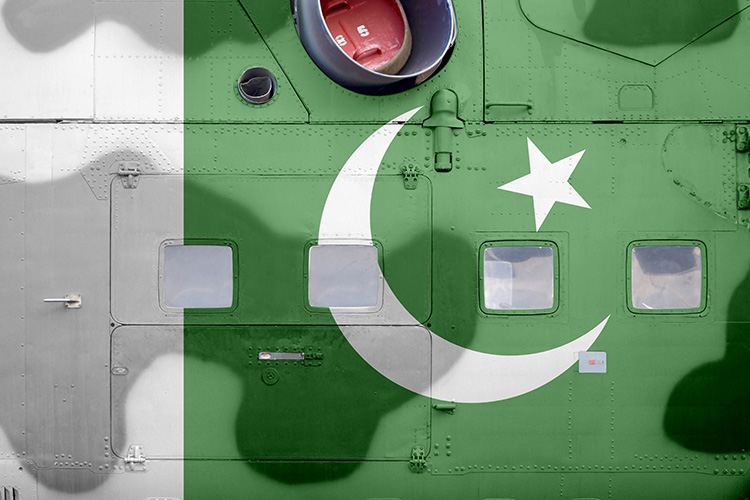Author Recent Posts Rabia Anwaar Latest posts by Rabia Anwaar (see all) Reignited Pak-Afghan Tensions: What Could Be the Way Forward? – November 4, 2025 Geopolitics and the Future of Gaza: Who Are the Real Stakeholders? – October 15, 2025 Iran’s Nuclear Ambitions and Israel’s Aggressive Dominance in the Region – July 15, 2025
India, under a far-right leadership of Modi, does not seem normalizing with Pakistan in either near or distant future. The hyper-nationalist leadership of a Hindutva ideologue Modi, reflects his ideological aspirations in his foreign policy towards Pakistan. His aggressive foreign policy posture had put the diplomatic relations between the two states to halt with seemingly no interest of restoring them. Through formal and informal channels, they have communicated many a times that India is not interested in having a cordial relationship with Pakistan. Indian economic ascendancy and diplomatic clout, has brought it to a leverage point that India claims to be embarked on a journey of regional hegemon. It has attempted its best to strangle Pakistan; politically, diplomatically and economically, to achieve its sinister goals. This growing antagonism against Pakistan is definitely horrible for regional stability. Pakistan and India may already stand on a threshold of brinkmanship but does there exist any single possibility of cooperation that will pave the way for lesser hostile relationship?
Pakistan and India have been tied in a complex and contested relationship since the time of partition; their engagement-disengagement-rapprochement cycle used to be a habitual aspect of their bilateral ties, until Modi assumed charge in 2014. It is not the first time that an RSS led BJP has come to power; however, such an aggressive and assertive leadership is the one of its kind in India, which arguably make anti-Muslim or Anti-Pakistan moves under its political maneuvering strategy and does not take into account the logic of consequentialism. The right-wing political system has even divided Indian society due to its outright vehement politics. The opposition claims it as Modi’s adventurism irrespective of the cost and benefit analysis of its decisions.
One of the major reasons for the ceased diplomatic relations is India’s attempt of revoking Article 370 and 35A, which granted Jammu and Kashmir a special autonomous status. BJP has had two goals; which it reiterated categorically and stated in its manifesto; constructing temple on Hindu claimed Ram janambhoomi land, on the site of Babri Masjd, and second to revoke Article 370 and take Kashmir back. BJP has accomplished both of it and persuaded its Hindu majority to believe in its ruling potential.
Leadership plays a major role in determining whether normalization of relations is possible. In Pakistan, Nawaz Sharif has always been the person who is considered as interested to establish and maintain cordial relations with India. But Pakistan’s foreign policy seems dominated by its military leadership and top-military leadership has traditionally been reluctant to have amicable relations with India. Ater Modi’s adventurism in Jammu Kashmir, bilateral relations has become even more vulnerable to hostility. Considering India, this time, under the leadership of PM Modi, this will be hardly possible to happen, due to his personal power ambitions and Hindutva ideological inspirations.
Geopolitics has also come into play while talking about normalizing India-Pakistan relations. The contemporary geopolitical situation of the region anticipates that shifted geo-political interests of the U.S has made Pakistan a lesser significant player in regional politics. With the withdrawal of U.S. from Afghanistan, Pakistan has lost its relevance to U.S. while geopolitical contestation in Indo-Pacific region has drawn India closer relatively to the U.S. Moreover, India’s uninterested behavior also heralds its regional hegemonic aspirations. The more it disengages with Pakistan, the more it will be able to take unilateral actions against Pakistan.
Another most important factor is Indian economic ascendancy. India has rose to the status of world’s 5th largest economy in the world, surpassing UK. It has revolutionized its economy since Manmohan Singh introduced reforms in its agricultural, technological and IT sector. India is rich in its human resource as well. Its industrial sector and agricultural economy are way more progressive than Pakistan. However, Pakistan is a declining economy of 2024. In normalizing of relations, although India would be having an upper hand in trade, even then it is reluctant to extend its hand of friendship to Pakistan.
Normalizing relations with Pakistan is not in interest with Modi’s India. The reason being that it will be against their mandate of securing major constituencies and thus, securing their vote bank across India. Playing on ethno-religious fault lines has become Modi’s dominant strategy to contest elections. Modi uses frequently, anti-Muslim and essentially, anti-Pakistan rhetoric to turn majority’s will in its favor. RSS has been sowing the seeds of hatred towards Pakistan since Partition. It has been banned thrice, first time on the accusation of involving in Mahatma Gandhi’s assassination and other two on the charges of involving in mob lynching and promoting hate culture in the society. Thus, normalizing relations with Pakistan would not be in their political interests.
Each side has proposed one condition to resume dialogue and negotiations. Pakistan wants India to restore Article 370 and grant back special autonomous status to Kashmir, while India wants reassurance from Pakistan on cross-border terrorism. both seems unlikely to become a reality. However, efforts to resume dialogues should continue and wait for the ripe moment to negotiate. There exist number of avenues of cooperation in non-traditional as well as traditional security areas, the only lacking aspect is the will of Indian leadership this time, as it has been only India since 2016, who halts the negotiation process with Pakistan.
- Reignited Pak-Afghan Tensions: What Could Be the Way Forward? - November 4, 2025
- Geopolitics and the Future of Gaza: Who Are the Real Stakeholders? - October 15, 2025
- Iran’s Nuclear Ambitions and Israel’s Aggressive Dominance in the Region - July 15, 2025





















Leave a Comment
Your email address will not be published. Required fields are marked with *